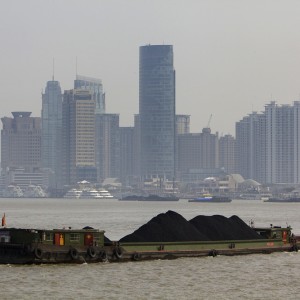Federal Water Tap, June 13: Pipelines, Plans and Spring Snowmelt Problems
Nevada Water Pipeline
The Bureau of Land Management has released a draft environmental impact statement for a proposed water pipeline from northern Nevada to the Las Vegas area. The Southern Nevada Water Authority plans to build the 285-mile pipeline if it can secure water rights and a right-of-way permission. The BLM is not involved in the issue of water rights—that is the domain of the Nevada state engineer—but because the pipeline would pass through lands it manages, the bureau will decide whether to grant a right-of-way for construction. The draft EIS is available for public comment until September 9. Comments can be sent to nvgwprojects@blm.gov.
Tar Sands Pipeline
The Environmental Protection Agency has criticized the State Department’s review of the proposed Keystone XL pipeline. In a letter, an EPA assistant administrator questioned the rigor of the State Department’s analysis of effects on groundwater and air pollution, Bloomberg reports.
The State Department announced that it would hold six additional hearings for the pipeline during the review process, something that stakeholders in the affected states had requested.
National Water Plan
Several federal agencies have collaborated on a draft plan for managing freshwater resources in response to climate change. In time, the plan may provide a framework for federal water management, but for now, it is a work in progress. The report makes six recommendations:
- Establish a planning process for adapting water resources management to a changing climate, and link federal, state, local and tribal decision-making
- Improve the information base
- Improve vulnerability assessments
- Improve water use efficiency
- Support integrated management decisions
- Use training and outreach to build human capital
Flood Insurance Gone Wrong
A report from the Government Accountability Office highlights the deficiencies of the FEMA-administered National Flood Insurance Program. Until 2005 the program was solvent, but the historic hurricane season that year caused its books to run red. As of March 2011, it owes the U.S. Treasury $17.8 billion. In the report the GAO says, in a vaguely damning way, that FEMA “lacks a comprehensive set of processes and systems to guide its operations”, and, more specifically damning, that the agency “has not developed goals, objectives or performance measures” for the insurance program. The GAO says the insurance program is unlikely to repay its debt in the near future—or ever—because of inherent structural problems.
Oceans
The President’s National Ocean Council has released a draft plan establishing nine priorities for protecting the nation’s oceans, coasts and the Great Lakes. One priority pertains directly to freshwater: improving land use practices to reduce pollutants and nutrient loads in rivers. Several priorities emphasize integrated planning, information sharing and data gathering.
Missouri River Flooding
The Army Corps of Engineers will be releasing record-level flows from the six reservoirs it operates on the Missouri River in order to make room for the runoff from a massive snowpack, Environmental News Service reports. The Corps said record releases of 150,000 cubic feet per second will commence on June 14 and continue through July, and possibly into August.
Stop the Wind
The federal agency responsible for much of the electrical grid in the Pacific Northwest convened a conference on how to handle the power glut that has forced wind turbine operators to halt electrical production, Oregon Live reports. A near-record snowpack in much of the Cascades has created a hydropower surplus during the spring melt. To reduce strain on the grid, the Bonneville Power Administration has forced wind operators to curtail generation. Conference attendees talked about solutions, including compensation for lost renewable energy tax credits and more storage capacity in Canada.
Federal Water Tap is a weekly digest spotting trends in U.S. government water policy. To get more water news, follow Circle of Blue on Twitter and sign up for our newsletter.
Brett writes about agriculture, energy, infrastructure, and the politics and economics of water in the United States. He also writes the Federal Water Tap, Circle of Blue’s weekly digest of U.S. government water news. He is the winner of two Society of Environmental Journalists reporting awards, one of the top honors in American environmental journalism: first place for explanatory reporting for a series on septic system pollution in the United States(2016) and third place for beat reporting in a small market (2014). He received the Sierra Club’s Distinguished Service Award in 2018. Brett lives in Seattle, where he hikes the mountains and bakes pies. Contact Brett Walton





Leave a Reply
Want to join the discussion?Feel free to contribute!